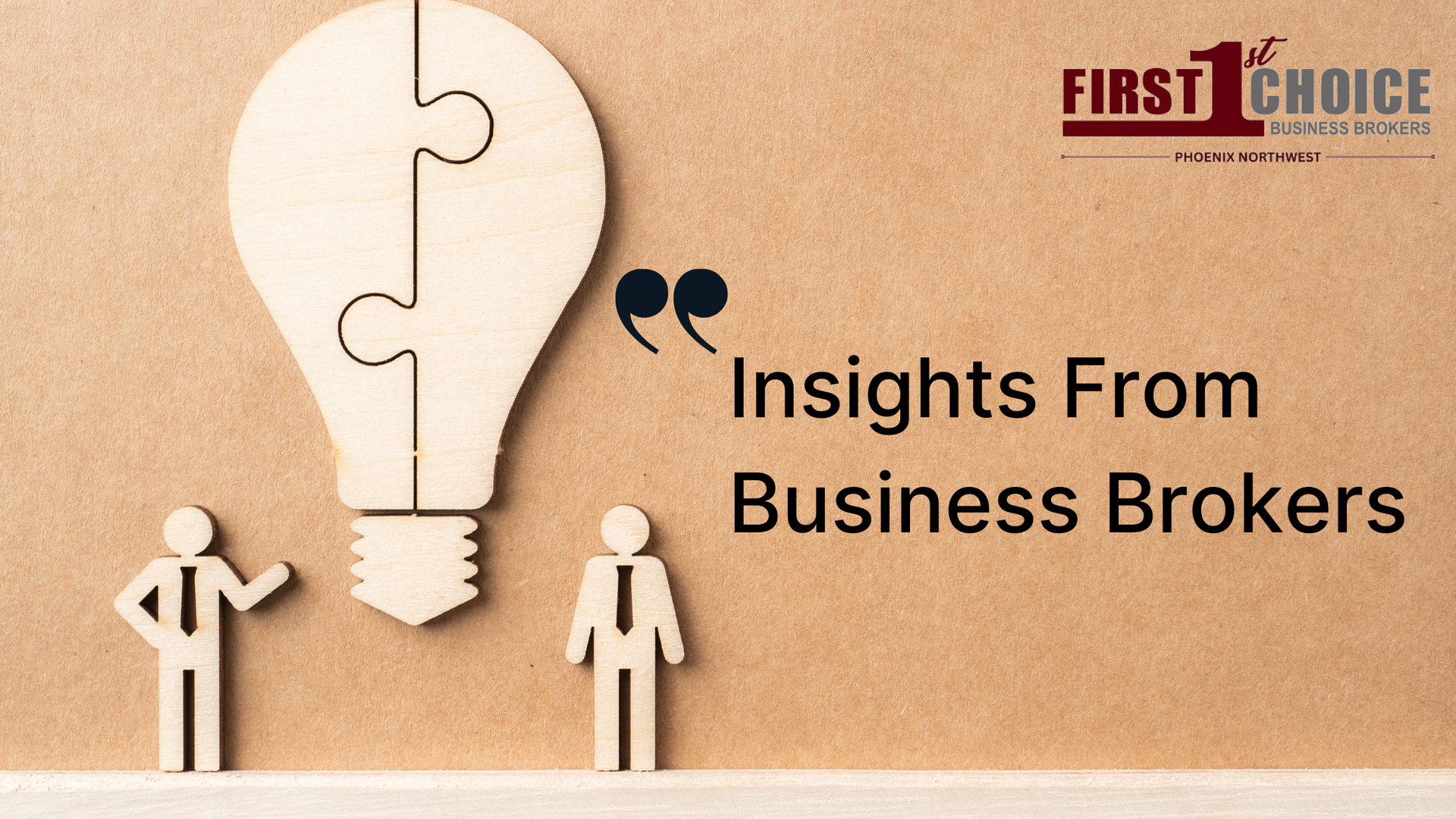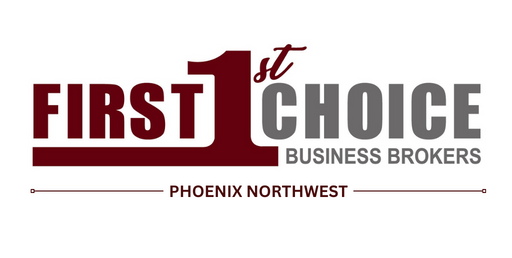Secrets to Successful Business Valuation: Insights from Brokers
What the Pros Know About Valuing a Business — And What You Should Too

Understand the Business’s Financial Health
The foundation of any valuation is a thorough analysis of the business’s financial records. Brokers examine historical and current financial statements, including income statements, balance sheets, and cash flow reports. Key metrics like EBITDA (Earnings Before Interest, Taxes, Depreciation, and Amortization) and profit margins provide critical insights into profitability.
A common mistake sellers make is relying solely on past performance. Successful brokers also project future earnings potential based on market trends and the company’s growth trajectory. Accurate financial data is non-negotiable—it forms the cornerstone of a credible valuation.
Account for Industry-Specific Factors
When valuing a business, one size does not fit all. Each industry operates within its own unique landscape, shaped by different growth trajectories, regulatory environments, customer behaviors, and competitive dynamics. Ignoring these nuances can lead to significant misjudgments in a business’s worth.
For instance, a tech startup may be valued heavily based on its intellectual property, growth potential, and user acquisition metrics—often prioritizing future earnings over current profits. In contrast, a manufacturing firm is more likely to be evaluated based on tangible assets, supply chain efficiency, and consistent cash flow.
Industry-specific considerations may include:
- Regulatory compliance: Highly regulated sectors like healthcare, finance, or food production carry risks and costs that impact value.
- Customer concentration and retention: In B2B service industries, having a few large, long-term clients may be an asset—or a risk—depending on contract terms and client dependency.
- Barriers to entry and competitive landscape: A business in a market with high barriers (like pharmaceuticals or aerospace) might command a higher valuation due to limited competition.
- Revenue models: Subscription-based SaaS companies are valued differently than project-based firms, due to recurring revenue and customer lifetime value.
- Seasonality and demand cycles: Industries like retail or tourism experience cyclical fluctuations, which must be factored into cash flow and risk projections.
Brokers understand that applying a general valuation formula without adjusting for these industry-specific variables can lead to inaccurate outcomes. Experienced brokers leverage industry benchmarks, historical data, and real-world transaction comparisons to fine-tune valuation models, ensuring the business is neither undervalued nor overhyped.
Consider Market Conditions
Valuing a business isn't done in a vacuum—market conditions play a critical role in determining what a buyer is willing to pay. Just as real estate prices fluctuate with housing demand and interest rates, business valuations rise or fall based on broader economic trends, industry performance, and buyer sentiment.
Key market factors that influence valuation include:
- Economic climate: In a strong economy, buyers may be more optimistic and willing to pay premium prices. During downturns or periods of uncertainty, even profitable businesses might see lower valuations due to perceived risk.
- Interest rates and lending conditions: Higher interest rates can make financing acquisitions more expensive, reducing buyer competition and driving down valuations.
- Industry trends and investor appetite: Some sectors go through "hot" periods where demand surges—think renewable energy or AI startups—which can drive up valuations. Conversely, industries in decline (e.g., traditional print media) may see suppressed values regardless of individual company performance.
- M&A activity: A competitive market with lots of merger and acquisition activity often pushes valuations higher. Conversely, in quieter markets, buyers have more leverage.
Brokers pay close attention to these external forces because timing can be just as important as business performance. A well-timed sale during favorable market conditions can significantly enhance a business’s valuation, while holding off during a market slump can preserve long-term value.
In short, understanding and aligning with current market dynamics ensures a more strategic—and profitable—approach to business valuation.
Assess Intangible Assets
While tangible assets like equipment, property, and inventory are easy to quantify, intangible assets often carry equal—or greater—weight in a business valuation. These are non-physical elements that contribute significantly to a company’s competitive edge and future earning potential.
Common intangible assets include:
- Brand reputation and recognition
- Customer relationships and loyalty
- Intellectual property (e.g., patents, trademarks, proprietary software)
- Company culture and internal processes
- Online presence and SEO rankings
For example, a well-known local restaurant with strong brand loyalty may command a higher valuation than a newer competitor with similar sales but no established name. Likewise, a software company with proprietary technology and a trusted brand may be more valuable than one reliant on third-party tools.
Brokers consider these assets carefully because they often translate into sustained revenue and market positioning. Proper documentation—like customer contracts, IP filings, or brand equity studies—can significantly boost the perceived value of these assets.
Evaluate Owner Dependency
A common red flag for buyers is high owner dependency—when the business's success heavily relies on the current owner’s skills, relationships, or involvement. If the owner is the face of the brand, the key salesperson, or the sole decision-maker, it raises concerns about whether the business can thrive after a transition.
Signs of owner dependency include:
- No clear management structure or delegation
- Lack of documented processes or systems
- Owner holds exclusive customer/vendor relationships
- Owner is the only person with technical or operational know-how
Reducing owner dependency increases a business's transferability and value. Brokers advise business owners to start documenting workflows, empowering staff, and building a second layer of leadership well before a sale. A business that can run smoothly without the owner is far more attractive—and valuable—to buyers.
Emphasize Recurring Revenue
From a valuation standpoint, recurring revenue is gold. It represents predictable, ongoing income from customers and lowers the financial risk for potential buyers. Businesses with stable, recurring revenue streams typically fetch higher multiples than those relying on one-off transactions or inconsistent sales.
Types of recurring revenue include:
- Subscriptions (e.g., SaaS platforms, membership models)
- Service contracts (e.g., maintenance agreements, retainer-based consulting)
- Automatic renewals or repeat purchase models
Why it matters: recurring revenue provides stability, visibility, and scalability. It signals that the business has strong customer retention and delivers ongoing value—key indicators of long-term sustainability.
When preparing a business for valuation, brokers recommend clearly showcasing the percentage of revenue that is recurring, customer retention rates, average contract length, and churn rate. Highlighting these metrics gives buyers confidence in the company’s future earnings potential.
Factor in Growth Potential
Valuation is not just about past performance; it’s also about future opportunities. Brokers identify growth potential by analyzing market demand, expansion opportunities, and scalability. A business with untapped market potential or plans for geographic expansion can be positioned as a lucrative investment.
Buyers are willing to pay a premium for businesses with clear growth strategies and actionable plans for increasing profitability.
Conclusion
Successful business valuation requires a holistic approach that blends financial analysis, market awareness, and industry expertise. Brokers use a combination of data-driven insights and professional judgment to provide realistic valuations that align with market conditions. By understanding the key drivers of value and addressing potential risks, business owners can achieve more favorable outcomes when selling their businesses.

Get in Touch:
First Choice Business Brokerage Phoenix
📍 21640 N 19th Ave Suite C9, Phoenix, AZ 85027
📞 (623) 888-6190
More Blogs For You





